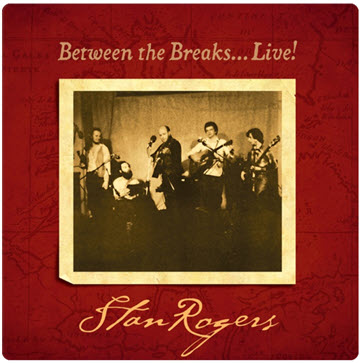
This song ranks as the greatest shipwreck ballad of all time. The performance by Lightfoot is unforgettable.
Later this year will mark 50 years since the tragic maritime accident on the Great Lakes- 29 men died that day in 1975 when the giant iron ore carrier Edmund Fitzgerald split in two and sank to the bottom of chilly Lake Superior. Just one year later in 1976 after reading an article in Newsweek magazine, the Canadian songwriter Gordon Lightfoot wrote and recorded “The Wreck of the Edmund Fitzgerald”, which turned out to be the masterpiece of his career. Five decades on the song lives on as the finest ballad ever composed about a shipwreck. Clocking in at six and half minutes, the song went to number 2 on the American charts. Lightfoot won the Canadian Juno award for songwriting.
Ten meter waves and hurricane force winds were responsible for the wreck of Edmund Fitzgerald. It wasn’t the first such disaster on the treacherous Great Lakes waters. On November 29, 1966, 28 crewmen on the freight Daniel J. Morrell sank in a wild storm on Lake Huron. Back in 1958, on November 19, 33 men died when the freighter known as Carl D. Bradley sank in a Lake Michigan catastrophe. On November 11, 1940, 57 men died when three ships went down in Lake Michigan. Earlier in the century, a record 254 people died on November 11, 1913 when a hurricane on Lake Huron forced 19 ships to a watery grave.
All of these tragedies happened in November storms.
Ever the prescient observer, Lightfoot highlighted the danger of sudden storms at this time in haunting fashion with the following lines:
“The wind in the wires made a tattletale sound
When the waves broke over the railing
And every man knew as the captain did too
‘Twas the witch of November come stealing”
The song was featured as the second track on Lightfoot’s Reprise album Summertime Dream. It was unlike any track he had ever recorded and seems strangely out of place on this album, which is a rather quiet affair. The length of the song, the slashing electric guitars, the long instrumental passages, the non-traditional rhyme scheme (mostly internal rhyming) were a significant departure from his other work of that period.
However, Gordon Lightfoot had a long history with powerful ballads, going back to his days on Liberty Records. Consider, if you will, the brilliant “Canadian Railroad Trilogy”, the maritime tune “Marie Christine”, and especially “Black Day in July”, which chronicled the Detroit race riots in 1967. These were great songs, but they were folk-based with quiet finger-picked acoustic 12 string guitars. For “Edmund Fitzgerald”, Lightfoot adopted a newer, stronger approach to songwriting and to arranging that culminated in the magnificence of this track.
The rolling, roiling waters of Lake Superior, the thundering waves, the ethereal west wind are all palpable in this recording. The ship was 730 feet long, the lake more than 530 feet deep, the sudden storm ferocious in its intensity. Three rogue waves broke the ship in half. As Lightfoot sang: “The searchers all say they’d have made Whitefish Bay, if they’d put fifteen more miles behind her.”

It’s impossible to listen to Lightfoot’s performance without being greatly moved by the impenetrable majesty, danger and inevitability of the violent storm. The electric guitar of Terry Clements, the powerful bass of Rick Haynes, and particularly, the drums and percussion of Barry Keane are individually, and collectively, their finest achievements on record. The recording was done in a single take, without rehearsal. Several attempts were made following the first recording session, but it was judged by all that the initial take could not be matched.
Lightfoot’s baritone voice, for all of its legendary beauty (about which Dylan famously said “I would listen to Gordon Lightfoot sing anything.”) comes to the forefront on this track with an authority and conviction scarcely hinted at in all of his previous outings. I say this as one who has seen him several times in concert, in many different settings, from the tiny coffee-house in Ottawa known as Le Hibou to the magnificence of Toronto’s Massey Hall.
“Lake Huron rolls, Superior sings
In the rooms of her ice water mansion”
No songwriter before or since has captured a maritime disaster with such lyrical force and musical authenticity. Stan Rogers did remarkably well with his “Northwest Passage”, and Dylan himself came off credibly with his take on the Titanic accident on his Tempest album a few years back. However, this song was a key factor in Lightfoot’s induction into the Songwriters Hall of Fame in 2012, an honour accorded to a limited number that included the likes of Bob Dylan, Paul Simon, Loretta Lynn, Jimmy Webb, Elton John and Bernie Taupin, and Hal David and Burt Bacharach.
Back in 1970 the noted music writer Noel Coppage wrote a feature article for Stereo Review in which he stated unequivocally that Lightfoot’s songs would be heard, sung and admired for the next hundred years. That bold prediction was made on the basis on the strength of Gord’s early albums – so good were they that none other than Phil Ochs had already pronounced him to be “Canada’s Hank Williams”.
Lightfoot passed away in May 2023 at the age of 84, his reputation forever secured by “The Wreck of the Edmund Fitzgerald”, and further burnished by a deep and varied song catalogue surpassed by very few.



